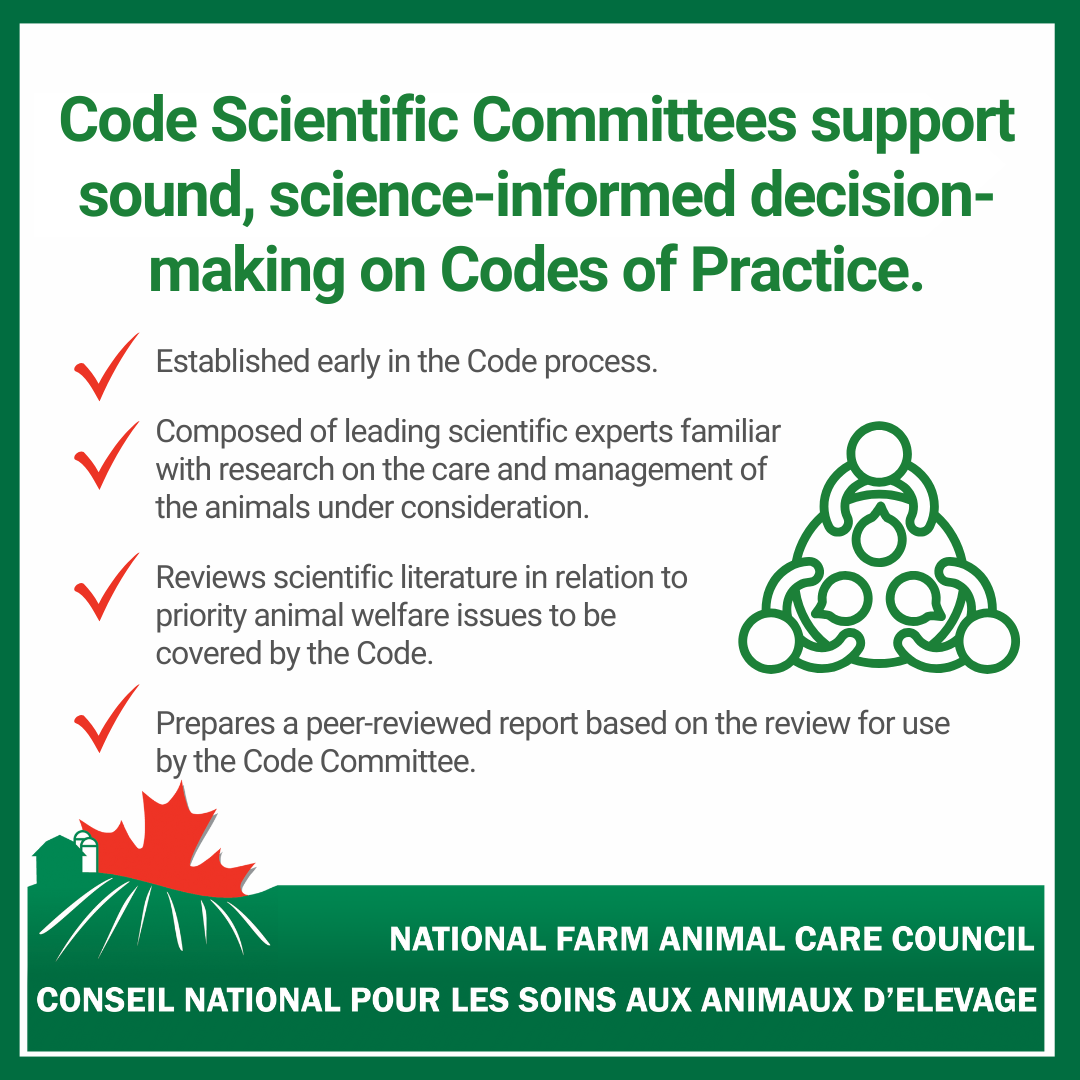Why establishing Code Scientific Committees early in the Code process is critical
Canada’s Codes of Practice provide critical guidance for the care and handling of farm animals. The Codes serve as our national understanding of animal care requirements and recommended practices.
Canada’s Code process is led by the National Farm Animal Care Council (NFACC) and the inclusion of Scientific Committees early in the Code process is critical.
Code Scientific Committees support sound, science-informed decision-making on Codes of Practice. The committee is established early in the process for each Code, selecting leading scientific experts familiar with research on the care and management of the animals under consideration.
Scientific Committees are currently in place for updates to the beef cattle; sheep; equine; chickens, turkeys, and breeders Codes of Practice, along with a Scientific Panel for the pullets and laying hens Code amendment. The primary task of a Code Scientific Committee is to review the scientific literature in relation to priority animal welfare issues to be covered by the Code and to prepare a peer-reviewed report based on this review for use by the Code Committee.
Priority welfare issues are confirmed for the following Code Scientific Committees:
The topics being covered by the pullets and laying hens Scientific Panel for that Code’s amendment are available here. Priority welfare issues for chickens, turkeys, and breeders, along with pigs will follow once those Code and Scientific Committees have their first meeting.
In developing its report, each Scientific Committee assesses priority welfare issues based upon three overlapping concepts of animal welfare, including:
- Biological functioning (including health and productivity)
- How the animal “feels” (including measures of pain and preferences)
- Naturalness (including the animal’s ability to perform behaviors that are important).
The aim is to bridge these distinct but overlapping viewpoints of welfare to find a balance that addresses each in a manner that sets us on a path of continual improvement.
Each Scientific Committee report provides scientific conclusions but not recommendations. This is based on the principle that “Science can tell us what is . . . but not what ought to be.” Animal welfare is all about the ethical concerns related to how we ought to treat animals. The ‘ought to be’ deliberations are the task of the Code Committee.
Visit NFACC’s website for more information (www.nfacc.ca).


